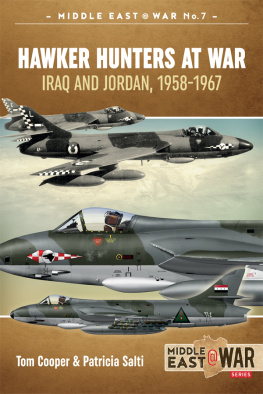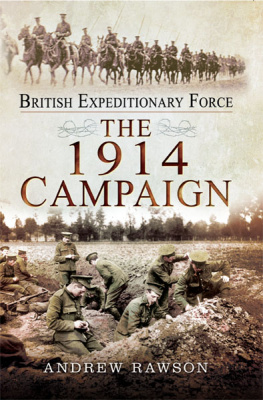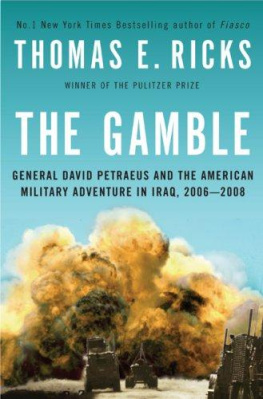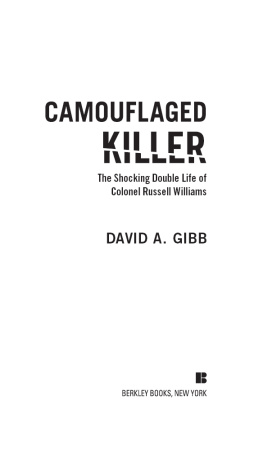
This edition is published by PICKLE PARTNERS PUBLISHINGwww.picklepartnerspublishing.com
To join our mailing list for new titles or for issues with our books picklepublishing@gmail.com
Or on Facebook
Text originally published in 2012 under the same title.
Pickle Partners Publishing 2014, all rights reserved. No part of this publication may be reproduced, stored in a retrieval system or transmitted by any means, electrical, mechanical or otherwise without the written permission of the copyright holder.
Publishers Note
Although in most cases we have retained the Authors original spelling and grammar to authentically reproduce the work of the Author and the original intent of such material, some additional notes and clarifications have been added for the modern readers benefit.
We have also made every effort to include all maps and illustrations of the original edition the limitations of formatting do not allow of including larger maps, we will upload as many of these maps as possible.
THE BRITISH EXPERIENCE IN IRAQ, 2007: A PERSPECTIVE ON THE UTILITY OF FORCE.
By
Colonel Ian N. A. Thomas OBE
TABLE OF CONTENTS
Contents
TABLE OF CONTENTS
REQUEST FROM THE PUBLISHER
ABSTRACT
Recent years have seen the US, UK and other ISAF and Coalition nations enmeshed in protracted, complex and intense campaigns in Iraq and Afghanistan. Resilient and highly adaptable opponents have operated asymmetrically, and amongst the people, to negate the technological superiority of the West; counterinsurgency (COIN) has been the norm. Progress made has been hard won, consuming considerable resources and testing national will. Despite the achievement of often rapid and spectacular tactical military successes, the desired political dividends have been slower to materialise and scarcely commensurate with the investment of national blood and treasure. This has led some to question the utility of military force and the mood in several Western capitals seems increasingly wary of further stabilisation campaigns abroad. This sense of caution is reinforced by the global economic downturn and its associated fiscal challenges, which have encouraged retrenchment in public spending, especially in defence budgets. It would seem timely, given this context, to reflect upon the utility of force.
Following Clausewitzs reasoning, the utility of force rests on its instrumentality in achieving a desired policy goal. This monograph contends that this involves controlling, to a sufficient degree, the adversarys policy choices, which depends on changing attitudes, and thence behaviour, in a way favourable to our interests. It requires our opponents to embrace our vision of their political future: they must be convinced to accept this changed political order. The political value of armed force derives from its power to hurt (its capacity for killing people and breaking things); its utility is a function of how effectively this can be harnessed to influence behaviour and achieve control. The ultimate expression of hard power, armed force can be used to deter, coerce or compel especially in an interstate conflict when these effects are focused on an enemy government in control of its people. In a confrontation with an enemy operating amongst the people, such as in stabilisation or COIN campaigns, where control of the people is contested and political considerations predominate, the power to hurt is diffused and attenuated, being consciously restrained by policy choices and by legal and moral norms. A greater premium is placed on persuasion over coercion. Here, activities designed to enhance legitimacy and win consent (for shorthand termed stabilisation) are likely to be more effective, with the military in a subordinate role. By promoting physical security, it can create the opportunity for other instruments of power to resolve political problems; but armed force alone may resolve little.
This monograph examines the purpose and dominant characteristics of military force and highlights the conditions that must obtain if military success is to be translated into political advantage in the contemporary operating environment. It uses recent British experience in Iraq to illustrate some of the challenges involved. It concludes that despite the complexity and frustrations of Iraq and Afghanistan, armed force retains utility in the contemporary operational environment, as long as certain conditions are met. These are that the missions allocated to the military are appropriate, recognising the limitations of force; are adequately resourced; are properly integrated with other instruments of national power; and are underwritten with the requisite political commitment to sustain them over time.
INTRODUCTION
In March 2007, troops from Multinational Division (South East) (MND(SE)) under British command conducted a successful raid against leadership elements of Basra Jaiysh al Mehdi (JAM) {1} , disrupting them momentarily. At the time the word was that JAM nefariously derived income from electricity generation in Basra and the minority governing Fadillah Party skimmed money from the oil industry. This corruption appeared to be tolerated by the Iraqi political establishment. The fact that Mr. Wahili, Basras governor, headed the Fadillah Party and was alleged to profit heavily from the oil industry, compounded the issue. Following the strike on JAM, Fadillah made an opportunist bid to exploit JAMs temporary disarray to muscle in on the electricity franchise. This provoked a violent backlash from JAM whose fighters besieged Wahilis residence, attacking it with rocket-propelled grenades and automatic weapons. Wahili called for MND(SE) assistance a request it was obliged to honor not least because it came from the duly elected Governor of Basra. An armoured battlegroup deployed to keep order and maintain the dignity of the Governors office. In meetings with community leaders subsequently, it was learnt that the JAM leadership was incensed at Governor Wahilis opportunism. The sentiment was that he was being greedy: he should have been satisfied with his income exacted from the oil industry and should not have had the temerity to try to get in on the electricity action as well {2} .
CONTEXT
The Basra vignette illustrates the Byzantine complexity of the political context within which Western forces have sometimes had to operate. More widely, recent years have seen the US, UK and other ISAF and Coalition nations enmeshed in protracted, complex and intense campaigns in Iraq and Afghanistan. Resilient and highly adaptable opponents have operated asymmetrically, and amongst the people, to negate the technological superiority of the West; counterinsurgency (COIN) has been the norm. Progress made has been hard won and costly, consuming considerable resources and testing national will. Despite the achievement of often rapid and spectacular tactical military successes, the desired political dividends have been slower to materialise and seemingly have not been commensurate with the investment of national blood and treasure.
There is a palpable sense of war weariness in certain Western capitals, where the mood seems increasingly wary of further direct intervention abroad {3} . Furthermore, the global economic downturn and its associated fiscal challenges have encouraged retrenchment in public spending, putting particular pressure on defence budgets. Additionally, the recent NATO campaign in Libya, dominated by air operations, seems not only to have successfully achieved its political objectives, but also to have done so in a conspicuously cost effective way, when compared against the benchmark of operations in Afghanistan. {4} Importantly, it was done within a timeframe politically tolerable for Western domestic electorates. Indeed, some see Libya as an exemplar for future intervention operations. {5} This, and the seductive allure of ongoing US drone strikes (more properly known as remotely-piloted aircraft (RPA) strikes) in Yemen and Pakistan, may encourage political decision makers to favour such limited footprint methods of military intervention and may reinforce the growing aversion to further large-scale stability operations. {6} NATO expects to reduce significantly the scope of its operations in Afghanistan and draw down its deployed force levels by December 2014, creating the attractive political proposition, in the present resource-straitened times, of a peace dividend . {7} However, the global security landscape remains challenging {8} . Accordingly, many nations, including the US and UK, are looking to rebalance their force structures and capabilities. {9}








